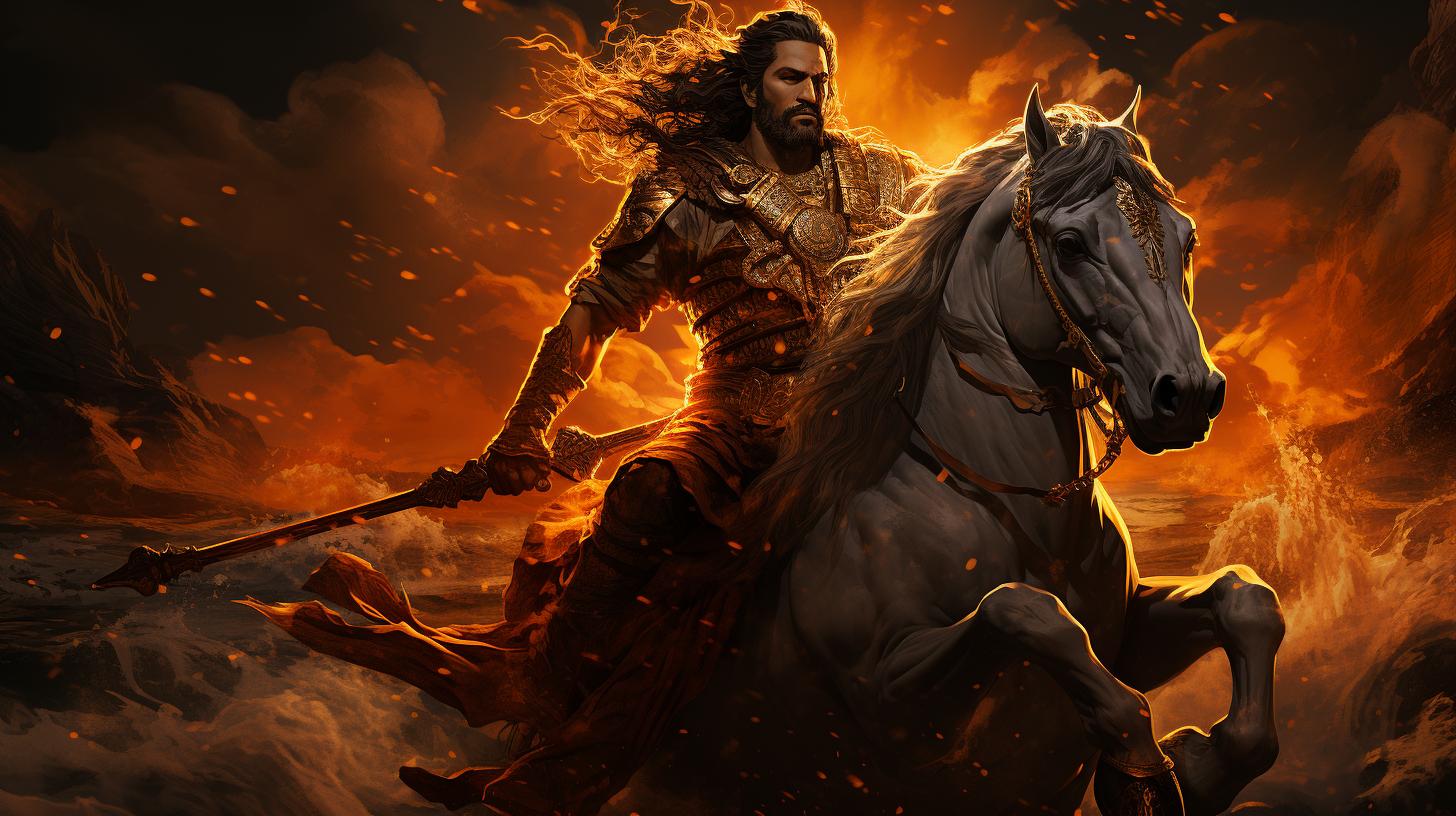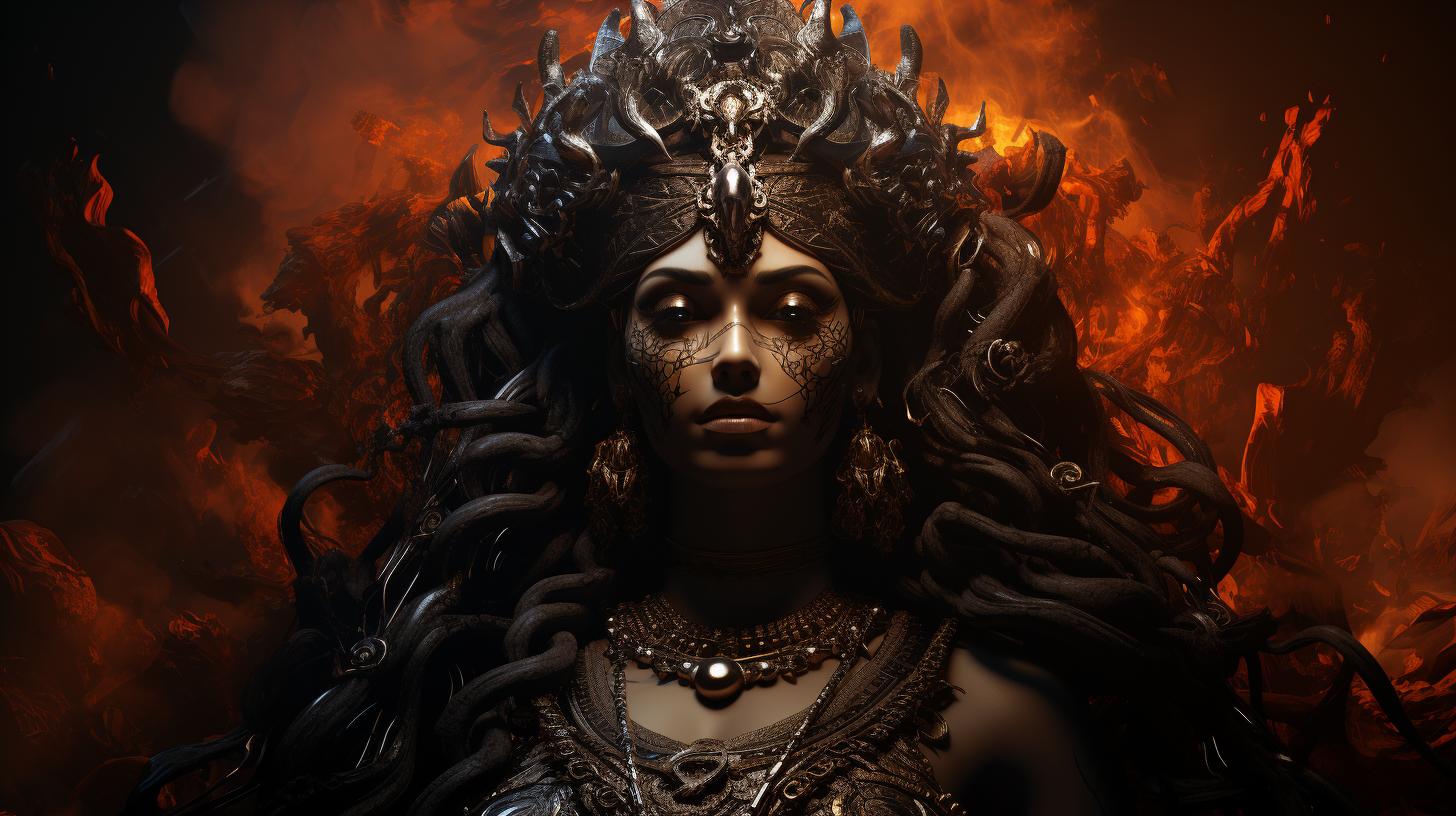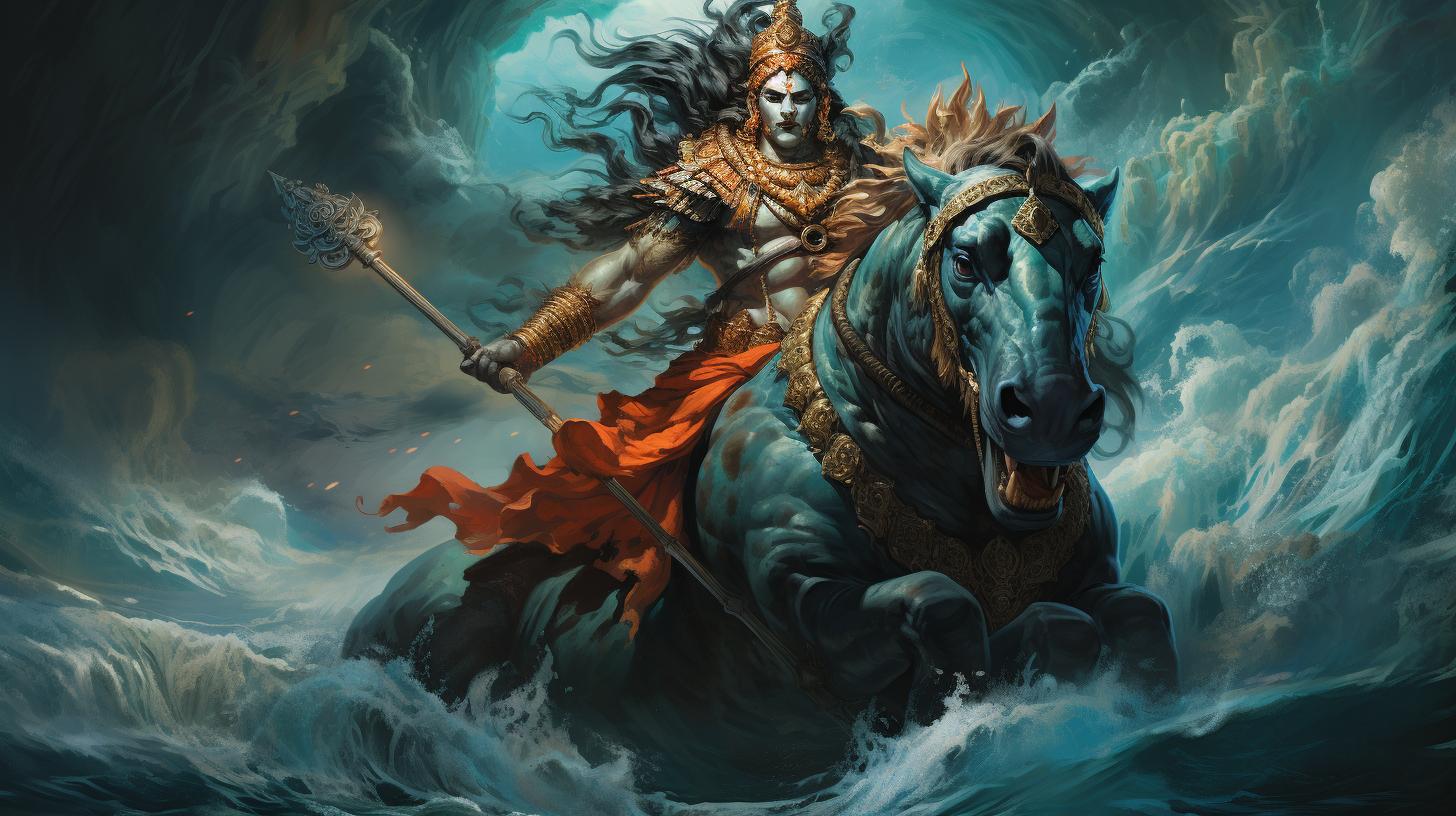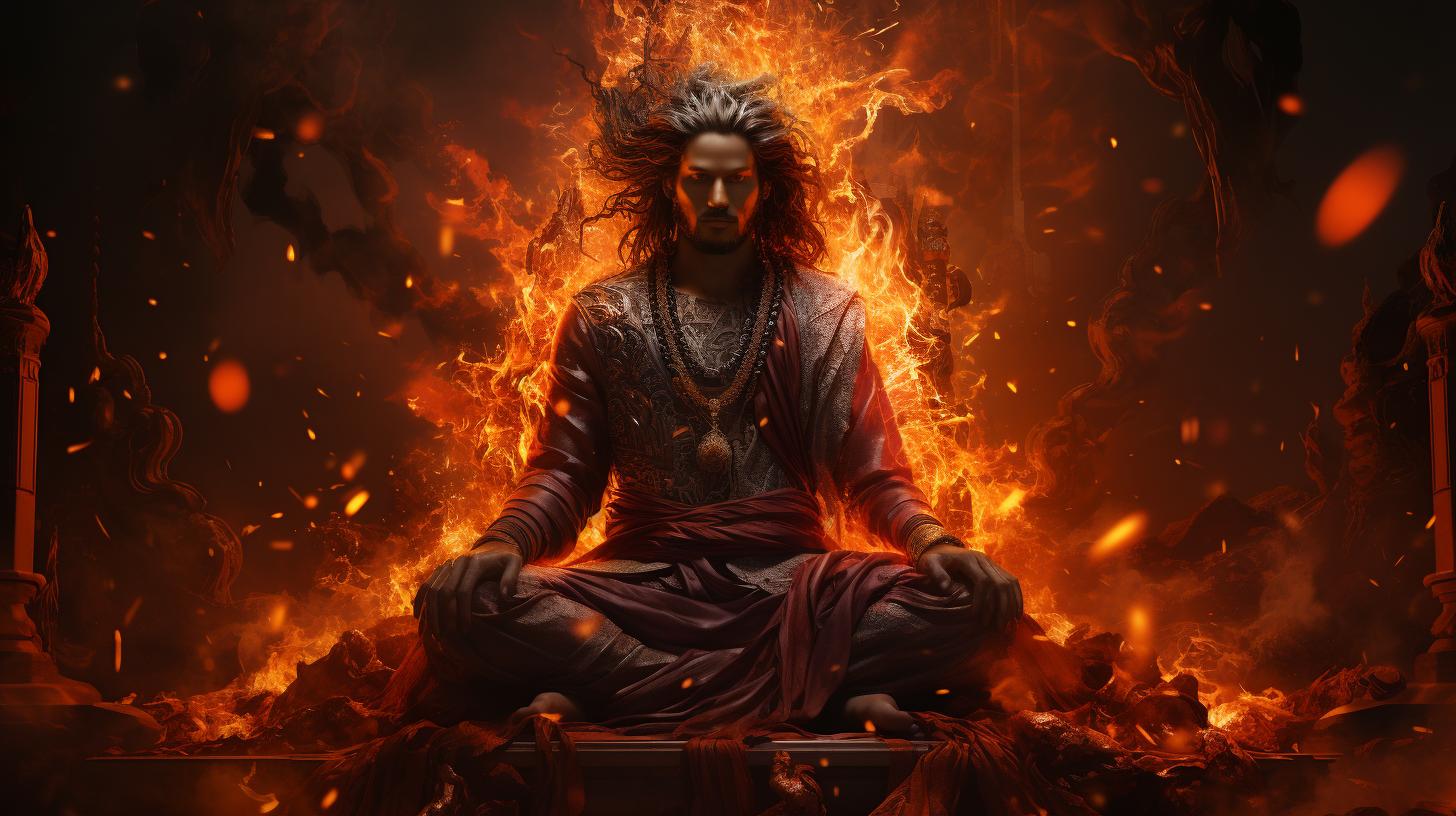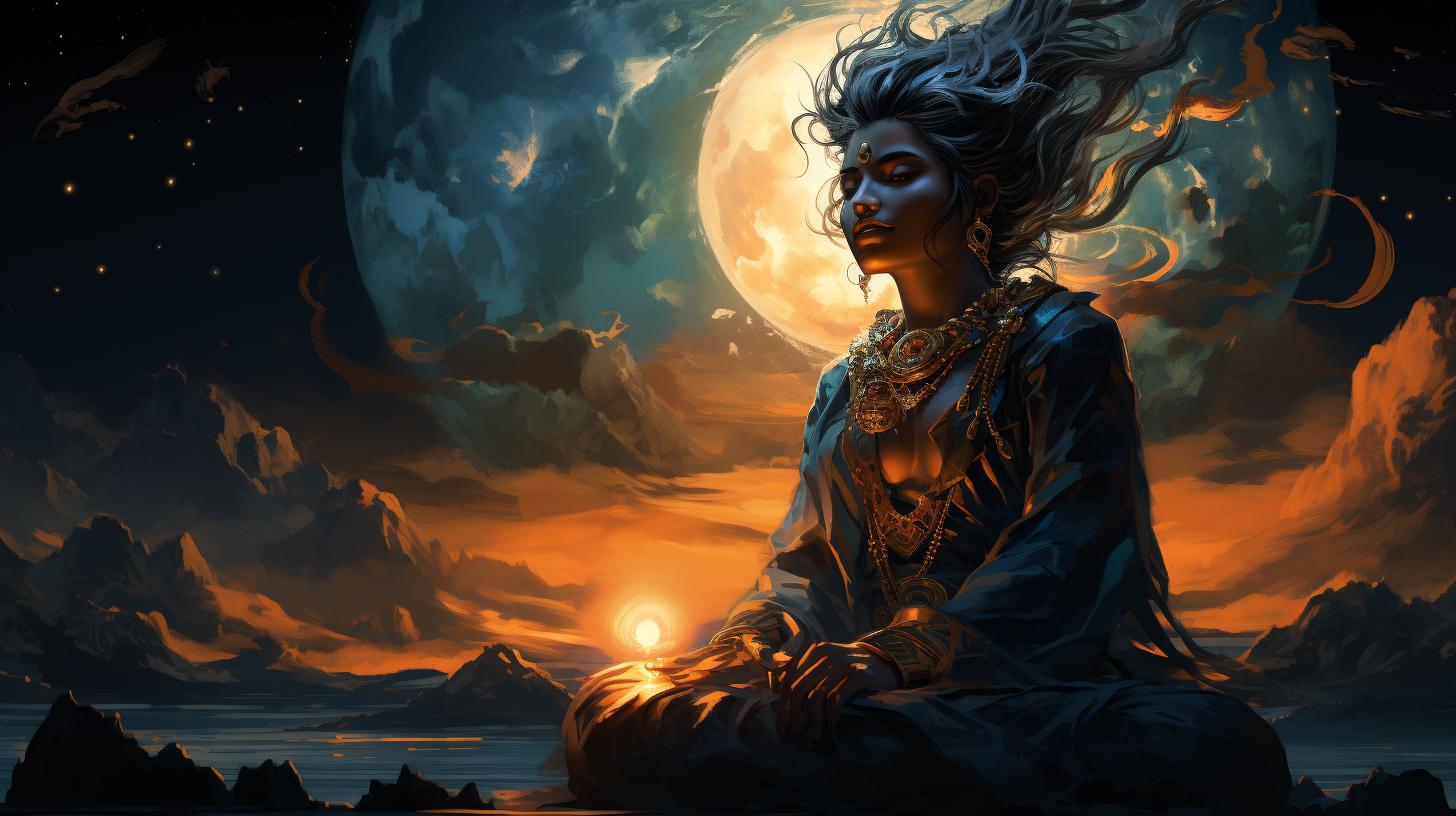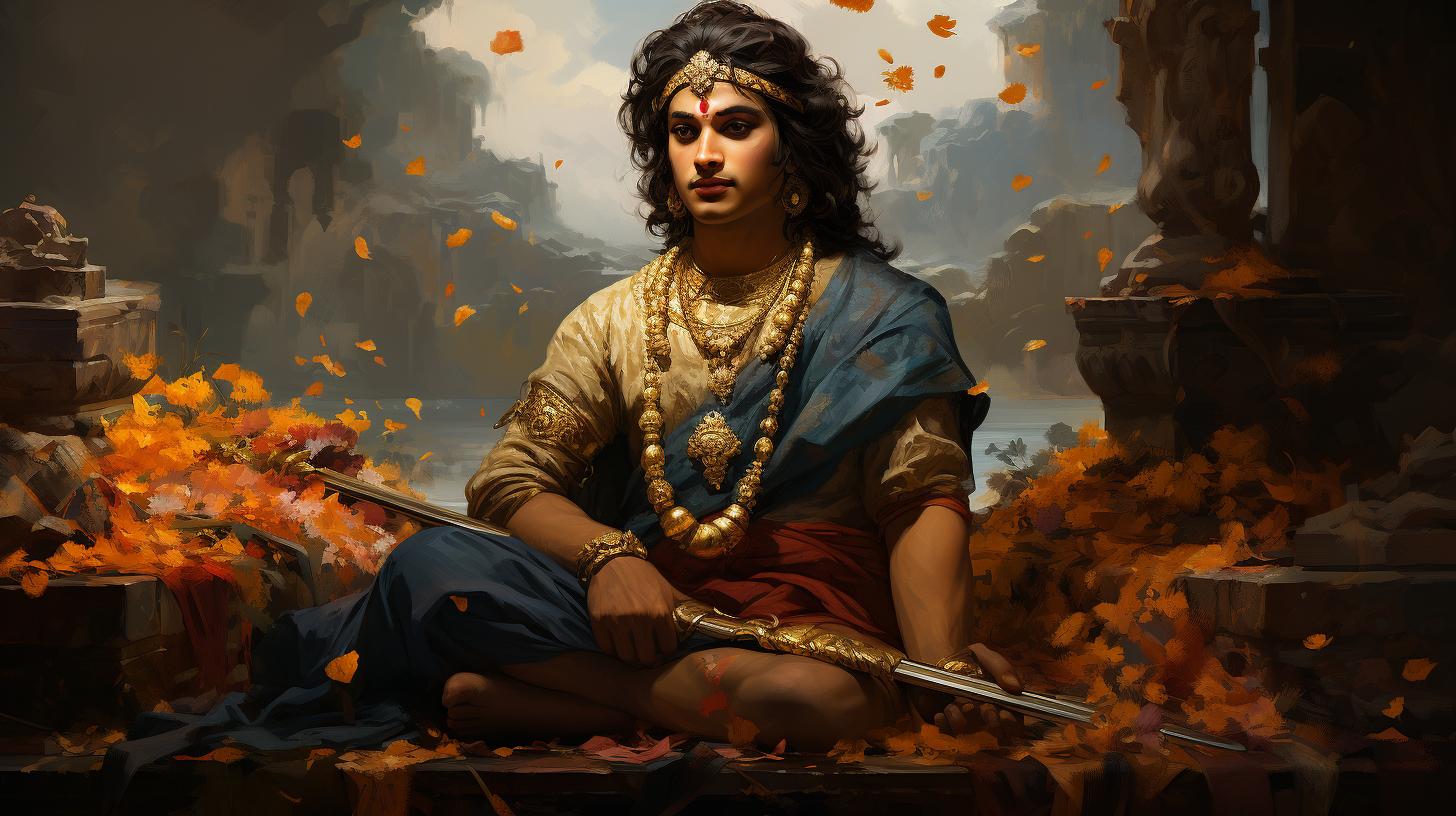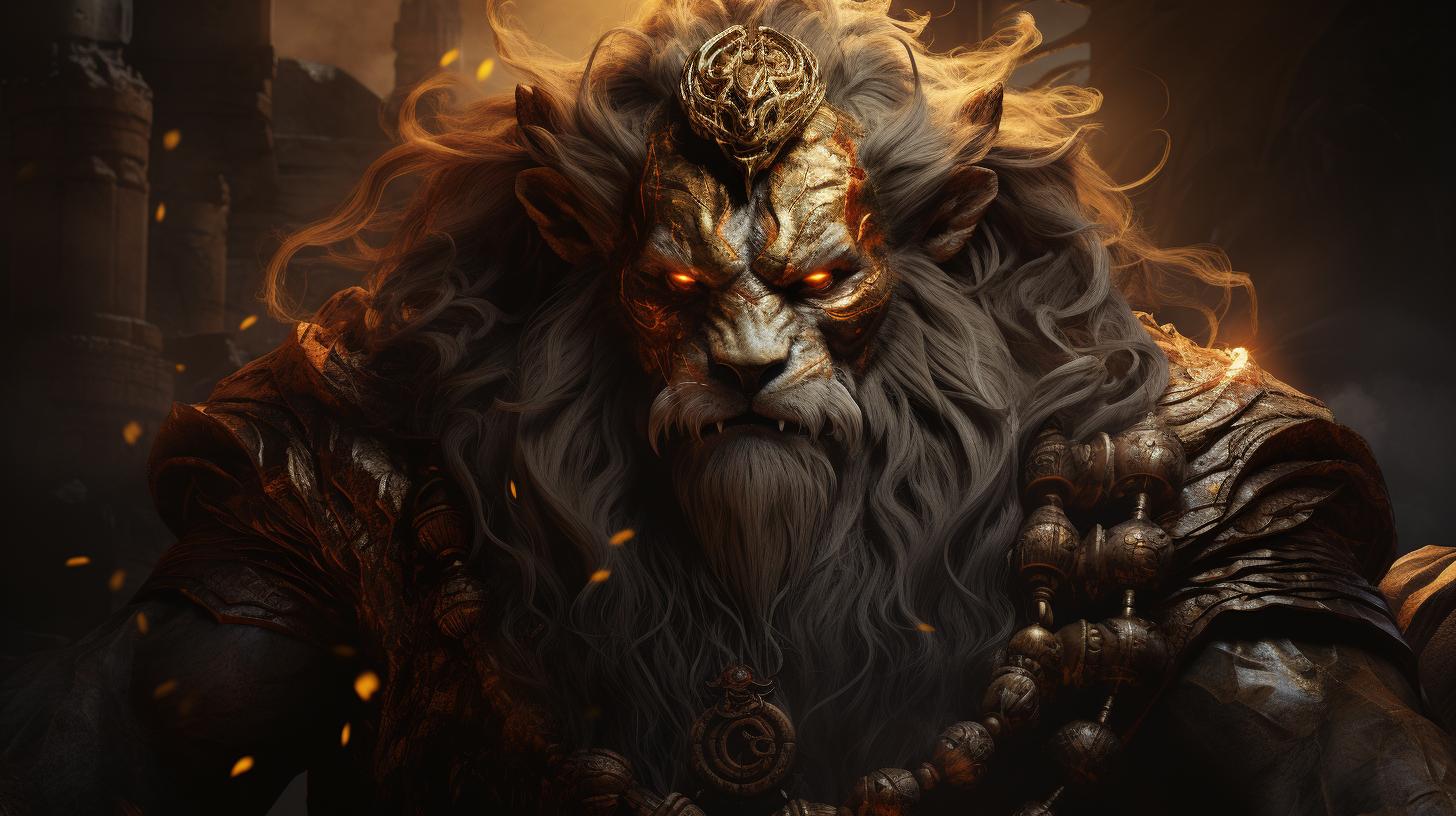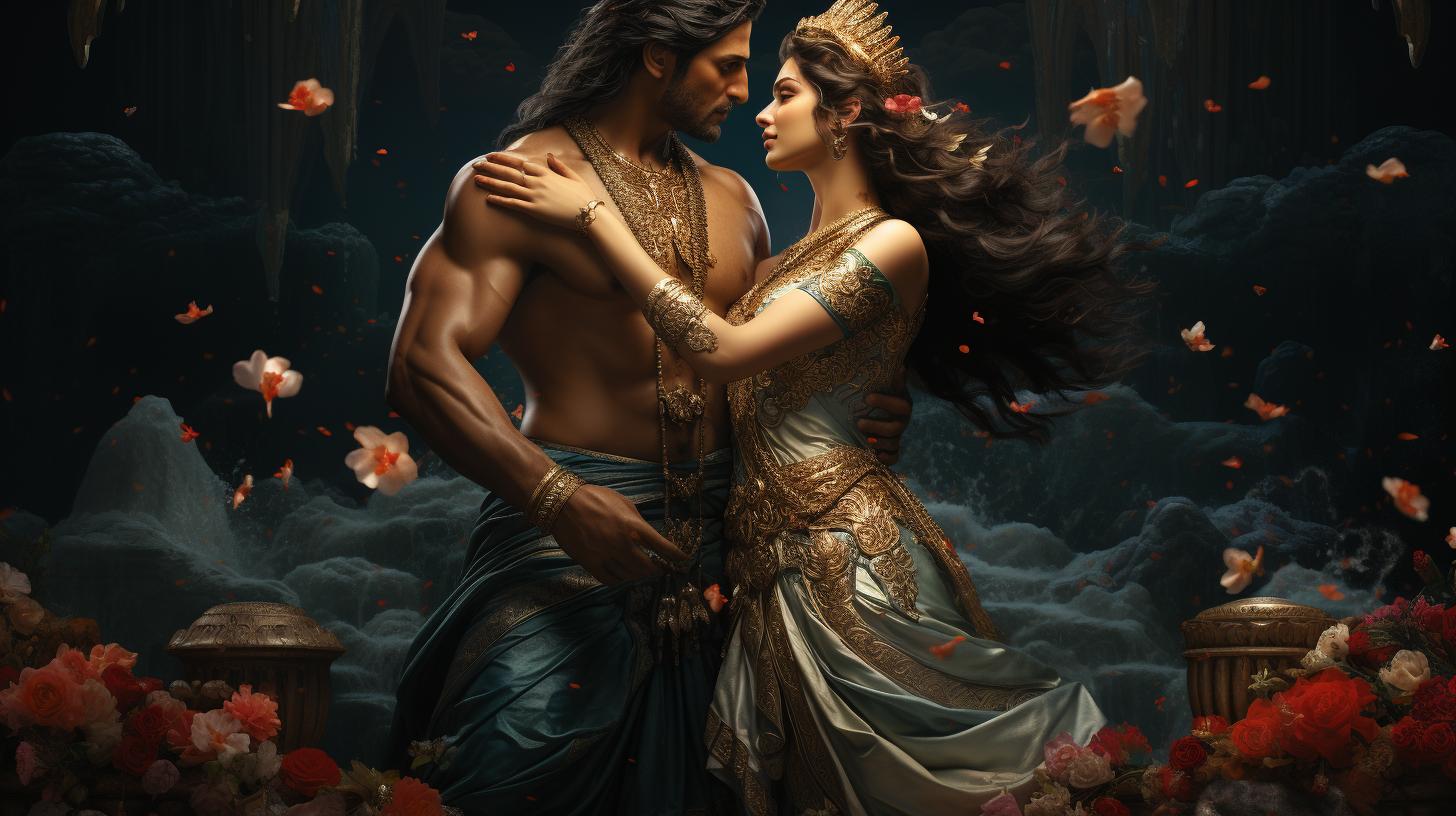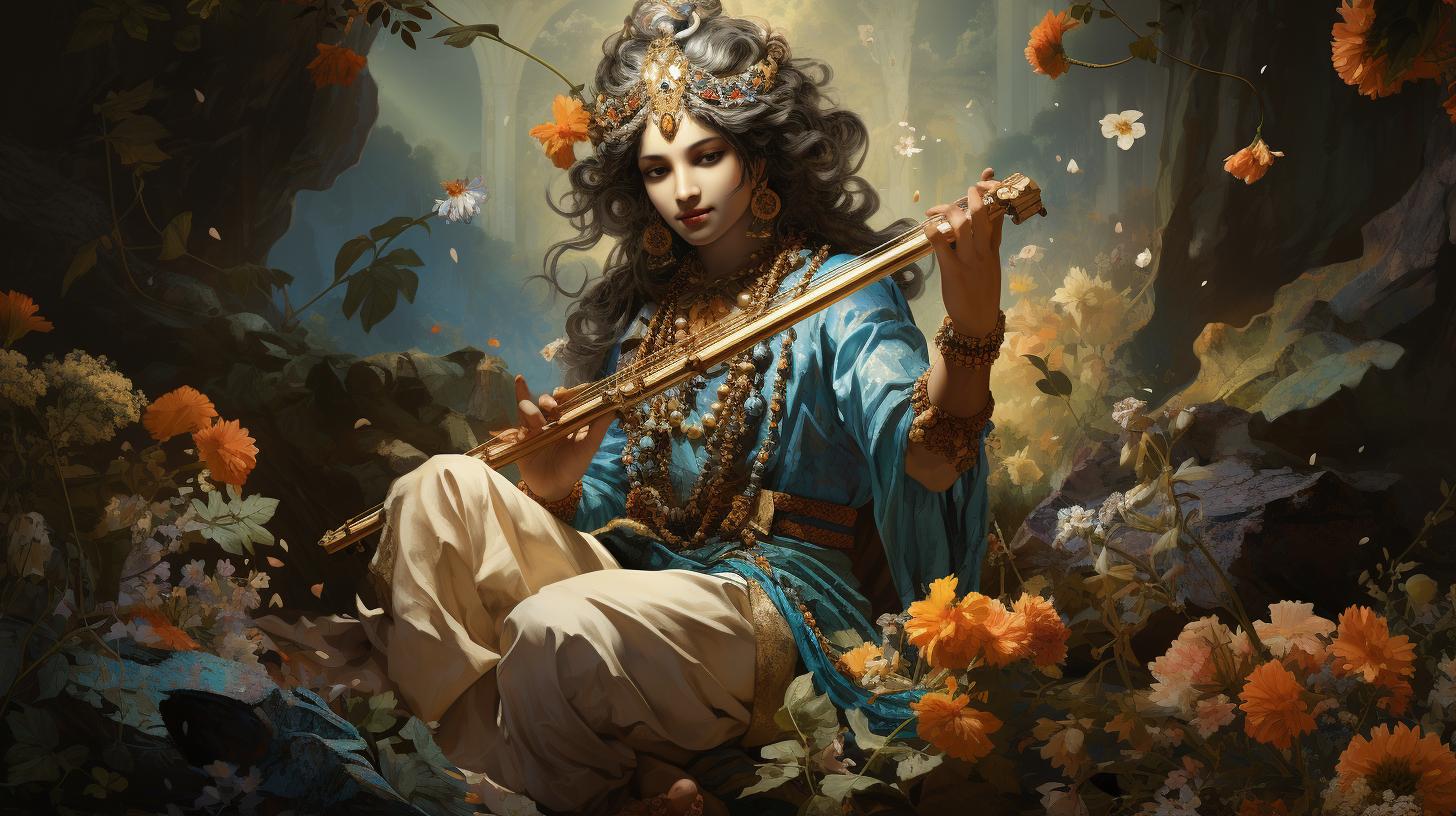Exploring the Significance of Indian God Surya in Hindu Mythology
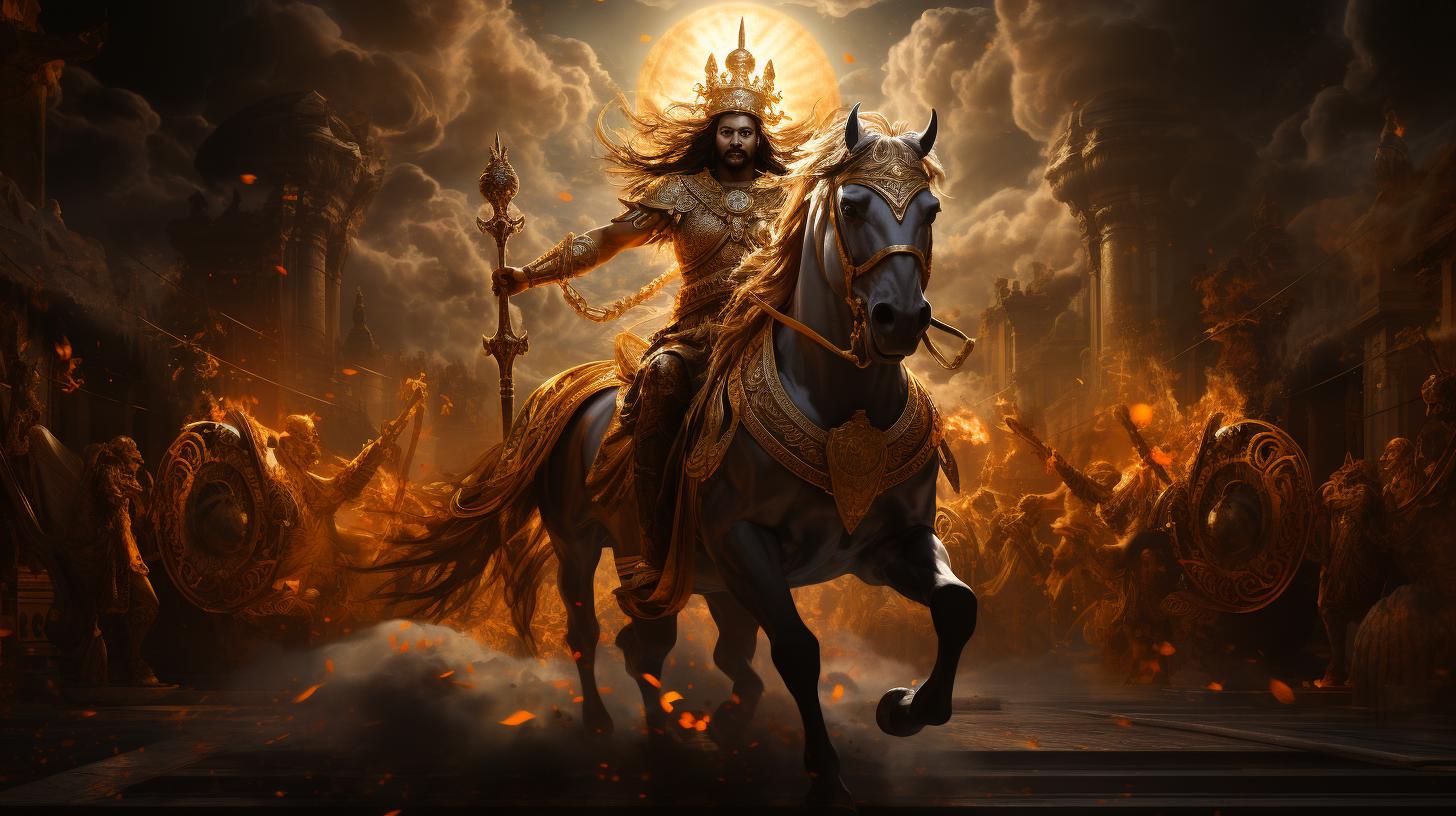
Surya, the Indian god, holds significant importance in Hindu mythology, being worshipped and revered in various religious practices and festivals. Represented as a solar deity, Surya is associated with knowledge, power, and clarity, symbolizing the dispeller of darkness.
Temples dedicated to Surya can be found not only in India but also in other parts of the world like Indonesia. Surya’s role extends to astrology and the zodiac, influencing beliefs and interpretations.
Additionally, Surya is considered the father of many notable characters in Hindu mythology. Let us explore the fascinating aspects of Indian god Surya in this article.
Surya in Hindu Mythology
Surya holds a significant place in Hindu mythology, not only as a deity but also as a revered solar god. Let’s delve into the origins and importance of Surya, his role in Hinduism and Vedic texts, and his relationship with other deities.
Origins and Importance of Surya
The roots of Surya’s worship can be traced back to ancient times in India. The early Vedic scriptures mention Surya as a prominent deity, symbolizing the radiant and life-giving power of the sun.
The importance of Surya lies in his association with light, warmth, and vitality, making him an essential figure in the religious and cultural traditions of Hinduism.
Surya’s Role in Hinduism and Vedic Texts
In Hinduism, Surya holds a pivotal role as both a cosmic and personal deity.
He is revered as the dispeller of darkness and ignorance, representing knowledge, enlightenment, and spiritual awakening. Surya is often worshipped during sunrise, signifying the cyclic nature of life and the renewal of energy.
Various Vedic texts, such as the Rigveda and Atharvaveda, contain hymns and prayers dedicated to Surya, emphasizing his divine attributes and his influence on human life.
Surya’s Relationship with Other Deities
In Hindu mythology, Surya shares a close association with other deities, particularly those related to the sun.
He is often depicted driving a chariot pulled by seven horses, representing the days of the week. Surya’s relationship with goddesses like Usha (the dawn) and Sandhya (twilight) represents the transition between night and day, further highlighting his connection with different celestial phenomena.
Additionally, Surya is believed to be the father of illustrious figures such as Yama, the god of death, and the divine twins Ashvins, among others, reinforcing his familial ties with deities in Hindu mythology.
Surya’s Representation and Symbolism
Depictions of Surya in Art and Architecture
Throughout history, artists have portrayed Surya in stunning artistic creations, showcasing his radiant and majestic presence. In sculptures and paintings, Surya is often depicted with a radiant golden complexion, adorned with magnificent ornaments and a crown.
He is commonly portrayed seated on a chariot, pulled by seven horses, symbolizing the seven days of the week.
Surya’s depictions can be found in numerous ancient and modern temples dedicated to him, particularly in India and Indonesia.
These architectural marvels feature intricate carvings and murals, capturing the awe-inspiring beauty and power of Surya.
Symbolic Meaning of Surya
Beyond his physical representation, Surya embodies profound symbolic meanings in Hindu mythology. He symbolizes knowledge, representing the illuminating light that dispels ignorance and darkness. Surya’s radiance signifies spiritual enlightenment, clarity of thought, and divine wisdom.
As the sun god, Surya is associated with energy, vitality, and life force. He is often worshipped for blessings of good health, prosperity, and success. Surya’s light is seen as a source of inspiration and transformation, guiding individuals towards righteousness and spiritual growth.
Furthermore, Surya’s depiction in a seven-horse chariot symbolizes his journey across the heavens, moving through the zodiac signs. This representation highlights Surya’s connection to astrology and the celestial influences on human lives.
In conclusion, Surya’s representation in art and architecture captivates the imagination, showcasing his radiant presence and symbolic significance. His depictions depict his divine qualities and spiritual power, inspiring devotion and worship among millions of followers.
Surya in Religious Practices and Festivals
Surya holds significant importance in religious practices and festivals within Hinduism. His worship and devotion are deeply rooted in the Hindu faith, with devotees expressing their reverence and gratitude towards this powerful solar deity.
Worship and Devotion to Surya
Devotees engage in various forms of worship to honor Surya. This includes offering prayers, performing rituals, and conducting ceremonies in dedicated temples. Followers seek blessings from Surya for positive energy, vitality, and spiritual enlightenment.
This ritual, known as Surya Namaskar or Sun Salutation, involves a series of Yoga postures accompanied by reciting specific mantras.
Furthermore, Surya is glorified through the singing of hymns, chanting of mantras, and the recitation of sacred scriptures that pay tribute to his divine qualities and blessings.
Surya’s Role in Hindu Festivals
Surya plays a crucial role in several Hindu festivals that celebrate the power of the sun and its benevolent influence on life.
These festivals are a vibrant showcase of customs, traditions, and religious fervor.
Pongal, a popular festival primarily celebrated in South India, honors Surya for the abundance of agricultural harvests. It involves preparing a special dish using newly harvested crops, offering it to the sun god, and seeking his blessings for prosperity and good fortune.
Chhath is another significant festival dedicated to Surya, mainly observed in several states of India, most notably Bihar and Uttar Pradesh. Devotees fast and offer prayers to Surya during this festival, expressing their gratitude for providing life-sustaining energy and seeking his blessings for the well-being of their families.
During these festivities, devotees gather at temples dedicated to Surya, engage in communal prayers, participate in joyous processions, and immerse themselves in various cultural activities like traditional dances and music performances.
Surya’s association with religious practices and festivals is a testament to his influence on the spiritual and cultural fabric of Hinduism, continuing to inspire devotion and celebration in the hearts of millions in the present day.
Surya’s Influence in Astrology and Zodiac
Surya, the revered Indian god, holds immense significance in the realm of astrology and the zodiac. His connection to astrological beliefs stems from his position as the solar deity, representing power, illumination, and cosmic energy.
The influence of Surya in astrology is profound, shaping the interpretation of horoscopes and birth charts.
Surya’s Connection to Astrological Beliefs
In astrology, Surya is considered the ruler of the zodiac sign Leo, bringing forth characteristics such as leadership, charisma, and creativity. His radiance represents the essence of individuality and self-expression. Surya’s placement in a person’s birth chart plays a vital role in determining their core personality traits and life path.
According to astrological principles, Surya’s alignment with other celestial bodies influences various aspects of an individual’s life, including career, relationships, and personal growth. Astrologers study the positioning and interactions of Surya in conjunction with other planets to gain deeper insights into an individual’s destiny.
Surya’s Significance in the Zodiac
Within the zodiac, Surya’s significance extends beyond his rulership of Leo. His energy permeates through all twelve signs, radiating warmth and vitality. Each zodiac sign receives a unique blend of Surya’s influence, shaping its elemental nature and characteristics.
- Aries: Surya enhances Aries’ courage, ambition, and leadership abilities, igniting their pioneering spirit.
- Taurus: Surya blesses Taurus with enduring strength, determination, and practicality, grounding their earthy nature.
- Gemini: Surya infuses Gemini with intellectual brilliance, communication skills, and adaptability, stimulating their versatile nature.
- Cancer: Surya instills Cancer with nurturing qualities, emotional depth, and intuition, fostering their compassionate nature.
- Leo: Surya’s rulership of Leo amplifies their charisma, self-confidence, creativity, and leadership qualities.
- Virgo: Surya augments Virgo’s analytical skills, attention to detail, and practicality, enhancing their methodical nature.
- Libra: Surya infuses Libra with diplomacy, harmony, and a sense of justice, shaping their pursuit of balance.
- Scorpio: Surya empowers Scorpio with intensity, passion, and tenacity, fueling their transformative nature.
- Sagittarius: Surya shines upon Sagittarius, inspiring their adventurous spirit, enthusiasm, and philosophical wisdom.
- Capricorn: Surya’s influence on Capricorn enhances their sense of responsibility, discipline, and ambition, driving their pursuit of success.
- Aquarius: Surya ignites Aquarius with visionary ideas, humanitarianism, and intellectual prowess, influencing their innovative nature.
- Pisces: Surya blesses Pisces with empathy, imagination, and spiritual depth, nurturing their compassionate and intuitive essence.
Understanding Surya’s significance within the zodiac allows individuals to connect with their inherent qualities and harness the power associated with their zodiac sign.
Temples Dedicated to Surya
Temples dedicated to Surya hold great significance in Hinduism, serving as sacred spaces where devotees can pay homage to this revered deity. These temples are architectural marvels that showcase exquisite craftsmanship and intricate carvings.
Famous Surya Temples in India
- Arasavalli Sun Temple, Andhra Pradesh: This ancient temple, dating back to the 7th century, is renowned for its unique architectural style and elaborate sculptures.
- Modhera Sun Temple, Gujarat: Built in the 11th century, this temple is an extraordinary example of Solanki-style architecture, with intricate stone carvings depicting Surya’s divine presence.
- Suryanar Temple, Tamil Nadu: Located in Kumbakonam, this temple is dedicated to the nine celestial bodies, with Surya being the primary deity.
It attracts a large number of devotees during the annual Panguni Uthiram festival.
Surya Temples Outside of India
- Prambanan Temple, Indonesia: This UNESCO World Heritage Site in Central Java is dedicated to the Trimurti, with Brahma, Vishnu, and Shiva being the main deities. Surya is also worshipped here, represented as the sun god.
- Ayutthaya Temple, Thailand: The iconic Wat Chaiwatthanaram temple in Ayutthaya features a beautiful central prang (tower) dedicated to Surya, showcasing the influence of Indian mythology in Thai culture.
- Thiruvidanthai Temple, Singapore: Situated on Sentosa Island, this temple worships Sri Surya Narayanan, allowing devotees to experience the spiritual connection to Surya amidst Singapore’s urban landscape.
These temples provide devotees with a place to offer prayers, perform rituals, and seek blessings from Surya.
Many of them also host elaborate festivals and religious ceremonies dedicated to the worship of this powerful deity.
Surya’s Family and Offspring
Surya, the revered Indian god, is not only known for his solar divinity but also for his role as a father. According to Hindu mythology, Surya has various children who hold significant positions in the pantheon.
These offspring play essential roles in religious tales and symbolize different aspects of life and existence.
Surya’s Children and Their Significance
Among Surya’s notable children is Karna, a key figure in the Hindu epic Mahabharata. Karna is revered for his strength, valor, and generosity, and his character embodies the idea of dharma, or righteous duty.
He is often depicted as a tragic hero due to his struggles and loyalty.
Another prominent offspring is Yamraj, the god of death and justice. Yamraj is responsible for overseeing the souls of the departed and ensuring appropriate consequences for their actions in life.
His role reinforces the belief in karma and the cycle of life and death in Hindu philosophy.
Yama, the god of death, is another important child of Surya. Yama is depicted as having a dual nature, representing both death and justice.
He is regarded as the first mortal to die and serve as the ruler of the underworld, guiding souls to their afterlife destinations.
Other Mythical Figures Associated with Surya
In addition to his children, Surya is also associated with other mythical figures in Hindu mythology. One such figure is Sugriva, a monkey warrior and the king of the Vanaras.
Sugriva played a crucial role in the epic Ramayana, aiding Lord Rama in his quest to rescue his wife, Sita, from the demon king Ravana.
Another notable association is with the famous sage Kashyapa, who is believed to be the progenitor of all creatures in the universe.
Kashyapa is considered to be the father of several deities, demons, and humans, further highlighting Surya’s connection to the creations of the world.
These mythical figures associated with Surya showcase the diverse and significant roles played by his offspring and their influence on various aspects of Hindu mythology and culture.
..

